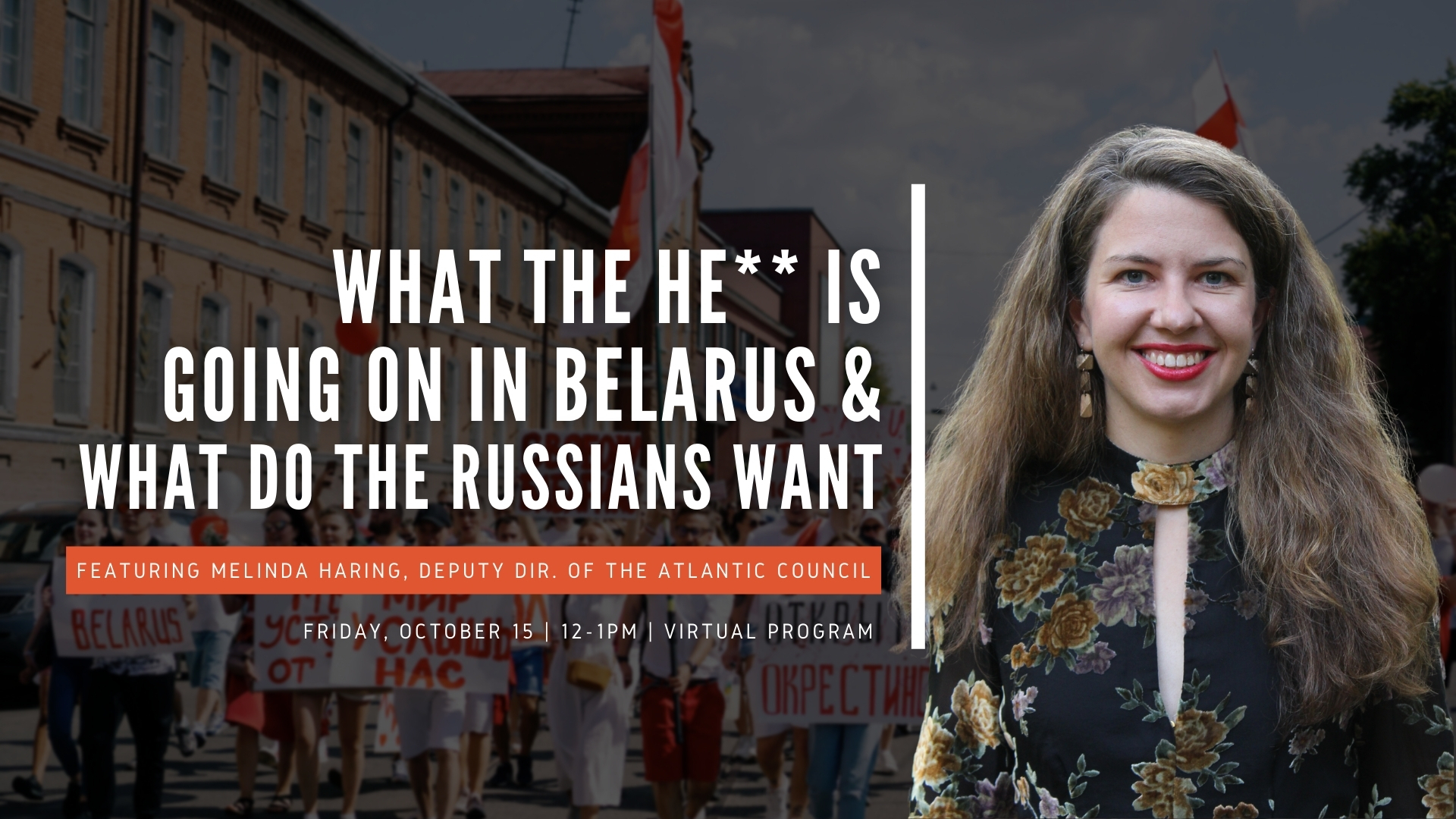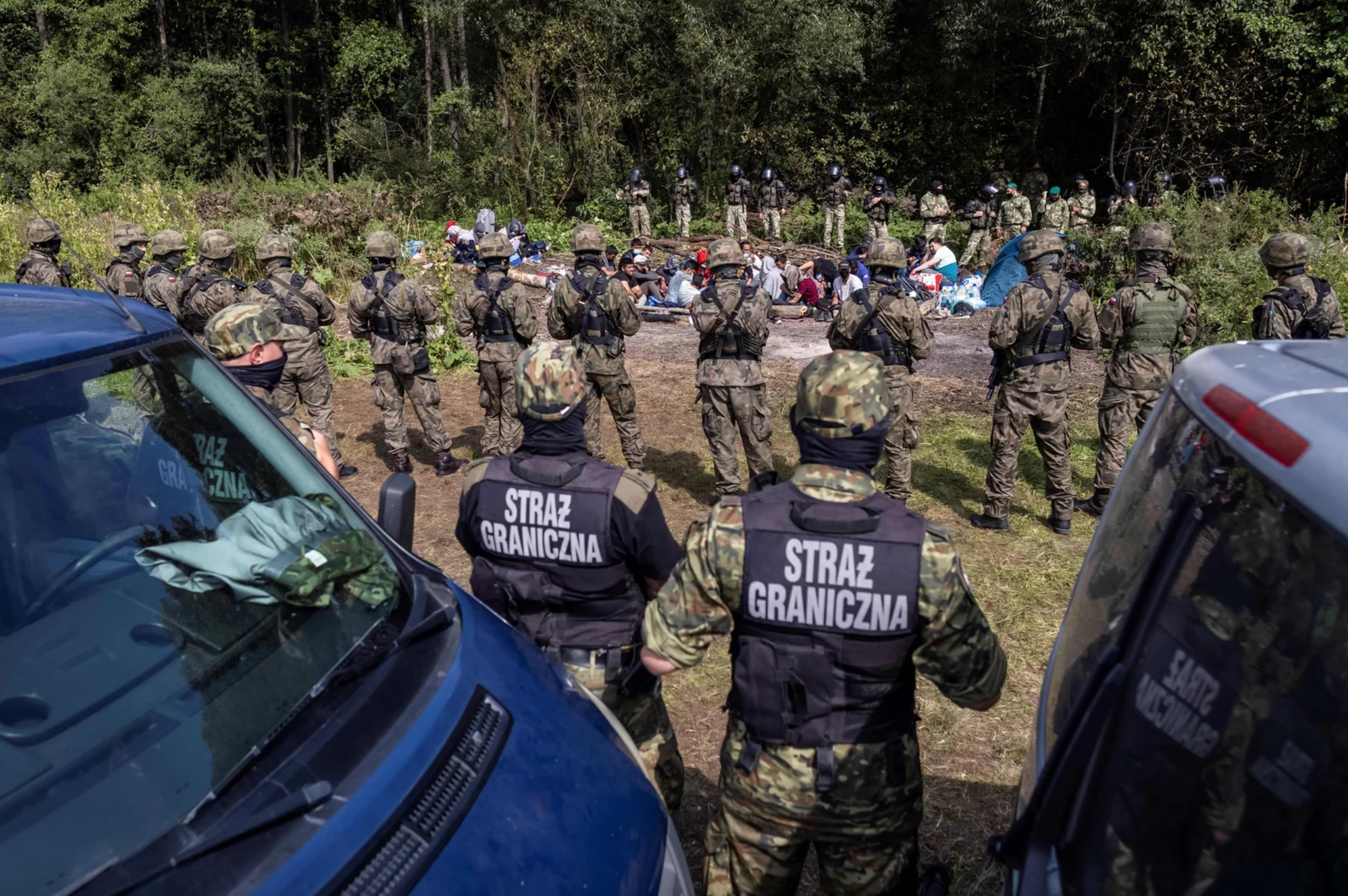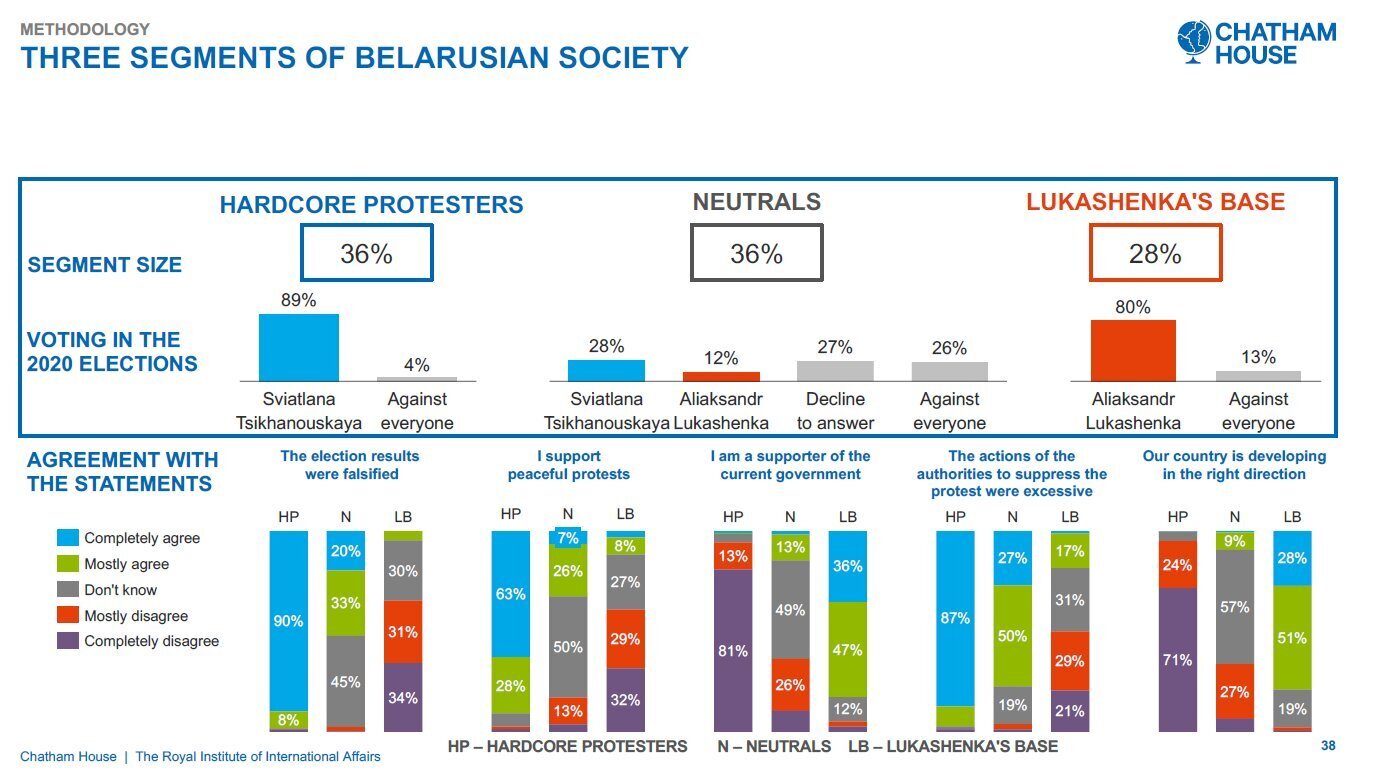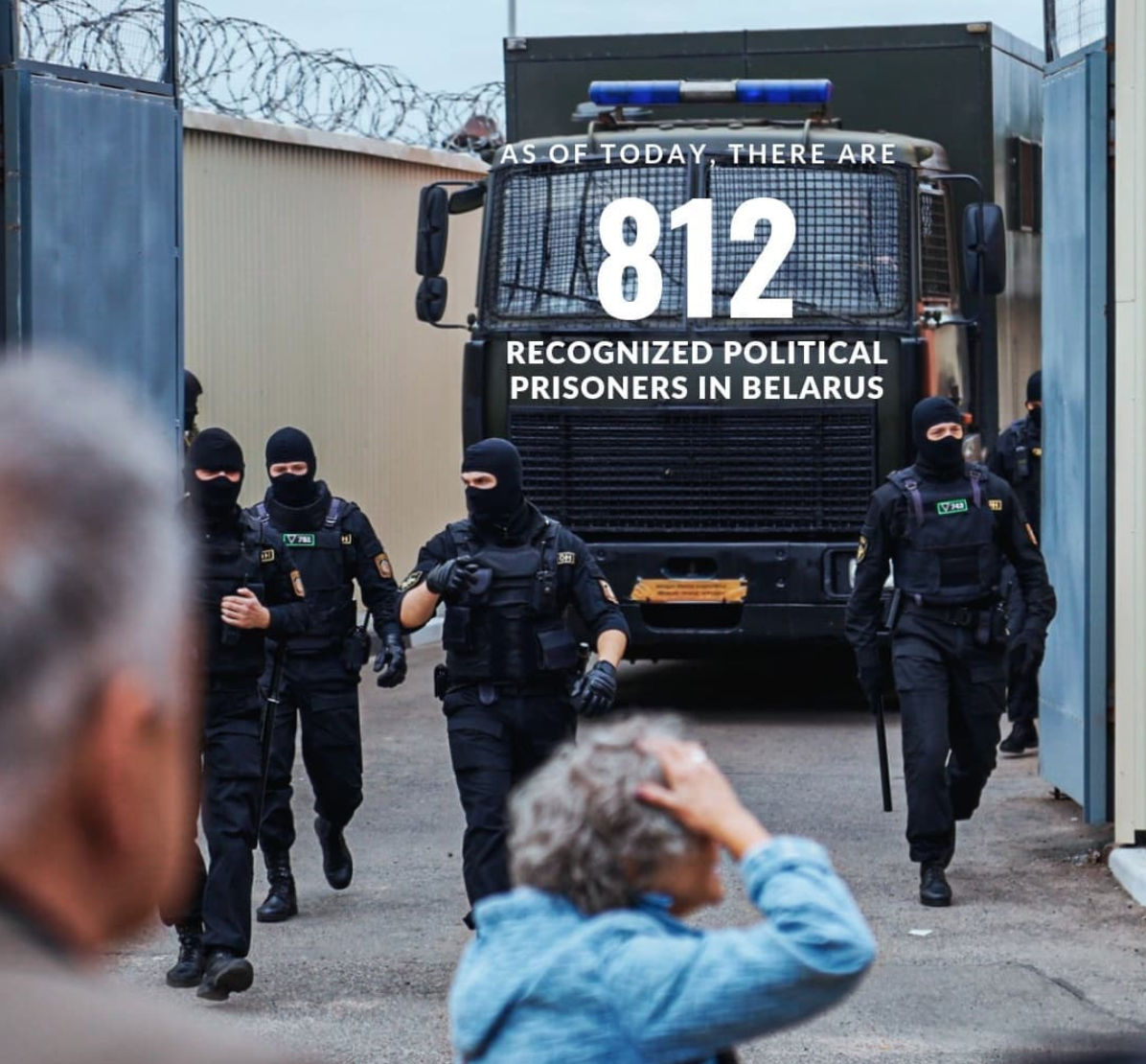Key Events: October 11-17

This past week: European Parliament votes on Belarus resolution, calls for International Criminal investigation into Lukashenka, authorities purge hundreds of human rights defenders & more.
Announcemenets & Past Events
Oct 20: Wilson Center: Politics and Civil Society in Belarus a year after mass protests. Event Sponsor: Kennan Institute. Webinar time 12:00pm – 1:30pm ET
Oct 15: What the He** is going on in Belarus and What do the Russians want?
Alaska World Affairs Council hosted a virtual discussion on Belarus with Melinda Haring, who is a deputy director of the Atlantic Council’s Eurasia Center. Watch video recording here (YouTube)

We respect your security: All links to Belarusian gov.by websites are marked by special character some ** text to prevent the unwanted opening
Top Stories
Oct 17: French ambassador ordered out of Belarus
The French Ambassador Nicolas de Lacoste was forced to leave Belarus at the Belarusian authorities’ request for refusing to present credentials to Lukashenka.
Belarus Internal Police announced that the subscribers of independent Telegram news channels labeled by the state as “extremists” could be criminally prosecuted according to a new resolution by the Council of Ministers**. The announcement had an effect with a number of independent media channels seeing a significant reduction in subscribers. Although the resolution does not mention any specific criminal liability for subscribing to the “extremists” telegram channels, in a county with the rule of law absent, the fear of being prosecuted remains real.
As an example, The Washington Post Editorial Board Opinion describes the case of a young couple who have been under arrest since July 2021 for exchanging the posts from the independent, deemed by the state “extremists,” media channels. The regime considers freedom of expression a crime and crushes it with an iron fist.
Oct 15: Belarus slaps “extremist” label on opposition leader’s Telegram channel
A Belarusian court has designated Sviatlana Tsikhanouskaya’s official Telegram channel and the election accountability platform Golos (Voice) as “extremist,” as authorities continue their clampdown on the opposition, independent media, and civil society following last year’s disputed presidential election.
Border Crisis
Background: In the past months, tens of thousands of migrants mainly from the Middle East and Africa have been lured by the Lukashenka regime to fly to Belarus on tourist visas, and then travel onward to the E.U. borders of Poland, Lithuania, and Latvia. At least five of them have reportedly died in the last three weeks alone. The Belarusian authorities’ aim, according to the E.U., is to create instability in the region as punishment for E.U. sanctions against the authoritarian regime of Lukashenka. The three EU nations have described the crisis as hybrid warfare by the human trafficking of migrants.

Oct 12: The E.U. accuses Belarus of luring global migrants into other European countries
The E.U. leaders and humanitarian organizations say Lukashenka’s government is organizing the illegal passage of migrants into Poland and other E.U. neighbors, orchestrating a humanitarian crisis. The documents found by a Polish journalist and shared with NPR support a claim on how the Belarusian government built an infrastructure to transport, accommodate and profit from migrants lured to Belarus from war-torn areas under the promise of safe passage to Europe.
Oct 13: Belarus border crisis intensifies as Germany reports huge jump in migrants, Poland plans ‘barrier’
German authorities report that more than 4300 illegal migrants have arrived in the country via the Belarus route since August. The number of migrants is expected to increase as Belarus does nothing to halt the migrants’ flow.
Oct 13: Putin’s willing provocateur: Lukashenka escalates E.U. border crisis & doubles down on propaganda
Brain Whitmore points out that the escalation of the border crisis is timed with the anti-Polish and anti-Western propaganda campaign led by the Lukashenka regime. Belarusian authorities are doubling down on propaganda accusing the neighboring countries of harsh treatment of migrants, publishing images from its western border and accompanying them with misleading and manipulative comments. Russian media sources are amplifying the Belarusian misinformation campaign, using desperate people fleeing war and repressions to destabilize Europe.
Oct 14: Polish MPs approve €350M wall on Belarusian border as migrant death toll rises
As the fifth migrant was found dead on the Polish-Belarusian border, the Polish parliament approved the construction of a €350 million wall on the border with Belarus to keep out migrants.
Analysis
Oct 10: Belarusians live in an increasingly divided country
According to the Chatham House, Lukashenka supporters make up only a quarter of the country’s population, while the remaining three-quarters are split evenly between the supporters of the protest movement and more passive observers. However, both the protest movement’s supporters and its detractors believe they represent the majority view in the country. The unfolding political crisis shows that Belarus can no longer maintain an image of a united, homogeneous country.

Oct 15: Bloodied but unbowed: Belarusian opposition fights on
The Belarusian democratic opposition movement formed in 2020 is young, more organized, united, and unwilling to admit defeat. The fellow at the Center for European Policy Analysis, Katia Gold, examines the opposition groups, their work’s goals, and strategies. “Though the opposition to the current regime in Belarus faces a long struggle with many challenges ahead, its supporters show no signs of quitting,” writes Katia.
Oct 13: How sustainable is the Belarusian economy?
The Belarusian Soviet-style economy might be sustainable, but Western sanctions must make it toxic for Russia to continue propping up the Lukashenka regime, writes Anders Åslund. Although the Belarusian economy does not guarantee economic growth and the Belarusian authorities poorly handled the covid crisis, the 2021 financial results are quite impressive due to the high prices of commodities which is the major part of Belarusian export. The Western sanction could deprive Belarus of about 4 billion USD. Still, Russian subsidies, high prices for Belarusian export, and manageable public debt of 37 percent could keep the Belarusian economy afloat.
Repressions in Belarus
Background: The Lukashenka regime ruthlessly and methodically continues to repress anyone who has been participating in last year’s protests and is exhibiting any signs of disenchantment with the regime. Since October 16 the number of political prisoners has risen to 812 people. Below are examples of the regime’s retaliation against its people for exercising their human rights. More information about the scale of repressions and deterioration of the human rights situation in Belarus could be found at Viasna Human Rights Center, Belsat Channel & Amnesty International.

Oct 13: Ministry of Justice suspends Tsikhanouski’s key lawyer Natallia Matskevich
Natallia Matskevich, the key lawyer in the trial of political prisoner Siarhei Tsikhanouski, has been suspended by the Ministry of Justice in connection with a “disciplinary action” against her.
Oct 15: Political prisoner Zmitser Furmanau kept in punishment cell in Vitsebsk colony for about 40 days
The regional coordinator of Sviatlana Tsikhanouskaya’s team Zmitser Furmanau was arrested in May 2020 during an election picket, charged under the alleged “organization and preparation of actions that grossly violate public order” and sentenced to two years in prison. Instead of going to his cell, Zmitser was put in solitary confinement where he was kept for 38 days for an unknown reason.
Belarus and the United States
Oct 12: Belarus to close New York consulate “at U.S. request”
Belarus’s consulate in New York City will close on October 21. Belarusian citizens residing in the consulate’s territory, which includes Canada, will have to contact the Belarusian Embassy in Washington for any services. New restrictions require U.S. citizens to obtain a visa to travel to Belarus, canceling the 30 days visa-free visit rule. Earlier Belarus limited the number of staff in the United States Embassy in Minsk to only five people and revoked its consent for the appointment of Julie Fisher as U.S. ambassador to Belarus.
Belarus and Russia
Oct 10: Moscow and Minsk in the next two years
iSANS analyst Alexander Morozov goes through factors that will play out in the politics of Russia and Belarus in the next few years. He suggests that instead of the widely expected “normalization” phase we will see continued repression in both countries, which are no longer as vulnerable to financial crises as before. This alignment will not be driven by institutional decisions (“union state”) but the flow of informal decisions – power and media – related to repression, with a radical withdrawal from the global political process.
Oct 13: The Kremlin needs a military base in Belarus
Russian military expert Pavel Luzin argues that Russia wants to create military presence in Belarus as it “wants to be able to project force into Belarus and, in the event of a conflict with NATO, into the Baltic region”, and that Putin benefits from a large-scale humanitarian crisis in Belarus.
Belarus and Europe
Background: The immediate neighbors of Belarus and Eastern European countries are concerned by the political crisis in Belarus which threatens the security and stability of the region.
Oct 11: Estonia: Events in Belarus threaten the stability of our region
Estonian Minister of Foreign Affairs Eva-Maria Liimets said at a United Nations Security meeting that the events in Belarus threaten Europe’s security and, again, called on Belarus to end the violence and for the immediate and unconditional release of all political prisoners.
Oct 16: Ukraine: West should set up pressure on Russia over actions against Belarus
First Deputy Foreign Minister of Ukraine, Emine Dzheppar, said that the Kremlin uses Belarus as a bridgehead to manipulate migration flows and should be held responsible for that. She also expressed concern over the further integration of Belarus into the Russian Federation and the risk of Belarus losing sovereignty. According to her, “within the framework of Putin’s policy of comprehensive absorbing and stripping Belarus of its sovereignty, the Anschluss of Belarus is actually taking place and it is being transformed into yet another military base to destabilize the security situation in Europe.”
Inside Belarus
Oct 13: Belarus regime “has used football as propaganda”
Belarusian Sports Solidarity Foundation (BSSF), an organization that supports professionals in sports facing pressure for speaking out against Lukashenka, produced a report that proves the regime systematically interfered in the running of the country’s football federation and used the sport as a “pro-government propaganda” instrument. The report was sent to UEFA, European football’s governing body, in hope that it will result in the suspension of Belarus from participating in European football.
Interesting Read
Oct 15: What the countries of Central and Eastern Europe must teach us
Oct 12: Belarusian IT sector a crucial actor in the fight against the Lukashenko regime
